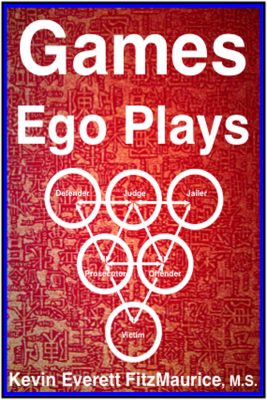Albert Ellis on FitzMaurice’s Books
- There remains much material to be added to this page.
- FitzMaurice still possesses letters from Al from approximately 15 years of correspondence.
- Additionally, Ellis commented on and quoted FitzMaurice in his own books.
- Finally, FitzMaurice edited and reviewed many of Ellis’s books, as can be verified in the acknowledgment sections of his books starting in 1994.
Albert Ellis on FitzMaurice is a page collecting some of his correspondence with FitzMaurice about his work and writings.
- Read and discover how CBT, REBT, & Stoicism evolved into one system: STPHFR.
Attitude Is All You Need! Second Edition
- Albert Ellis, the founder of Rational Emotive Behavior Therapy (REBT), was voted the second most influential psychologist of all time by the American Psychological Association (APA).
“He is an independent thinker and I would advise you to read some of his books, particularly Attitude Is All You Need! It will help you control your anxiety and overcome other emotional problems” —Albert Ellis, Ph.D.
- Dr. Ellis devoted a chapter to Attitude Is All You Need! in his book How to Control Your Anxiety Before It Controls You.
Planet Earth: Insane Asylum for the Universe, Second Edition
“In many ways it is quite a masterpiece, and is the culmination of what you have been doing and writing for the last decade.” –Albert Ellis, Ph.D.
- This quotation was in reference to the first edition of the above book.
We’re All Insane! Second Edition
“I found it a most unusual book that makes some excellent points, almost all of which I go along with. It sort of brings Alfred Korzybski up-to-date and makes some points which [sic] are not particularly clear in his own writings.” —Albert Ellis
- Albert Ellis said this about the first edition of We’re All Insane!
- Thought-things are a way to understand thoughts that are mistaken for what they are about.
- Some related ways of talking about such thoughts are to concretize, hypostatize, reify, or thingify a thought.
“Counselor Kevin FitzMaurice has been campaigning for years against the human habit of turning thoughts into things and constructing misleading ‘thought-things.’ Thus, as I pointed out in my section on Unconditional Self-Acceptance (USA) in chapter 2, we frequently have a thought such as, ‘I shall conditionally accept myself and other people’ — where accept is a verb — and we turn it into a noun, acceptance. Then we think that acceptance really exists as an entity in itself, a thought-thing. Accepting is something we do — an action — but we confuse it with a thing that has external embodiment.” —Albert Ellis, Feeling Better, Getting Better, Staying Better, p. 109
- Read and discover how CBT, REBT, & Stoicism evolved into one system: STPHFR.
Alber Ellis on FitzMaurice: His Writings
- You can find acknowledgments to FitzMaurice for reviewing Ellis’s books starting in 1994 and up to his death in 2007 at 93.
- Ellis also references and provides quotations from FitzMaurice in his books.
- For an example of these quotations, read Ellis’s magnum opus, Reason and Emotion in Psychology, Revised and Updated, 1994 version.
- Ellis and FitzMaurice had extensive correspondence over the years that have been saved and will likely be put into book form at some point in the future.
3 Main Principles/Philosophies of REBT & FitzMaurice
- Ellis credited FitzMaurice with the addition of unconditional life acceptance (ULA) to the theoretical framework of REBT.
- Albert Ellis did this in his book, Feeling Better, Getting Better, Staying Better.
“Kevin Everett FitzMaurice suggests that REBT theory can include: (1) USA, Unconditional Self-Acceptance, (2) UOA, Unconditional Other-Acceptance, and (3) ULA, Unconditional Life-Acceptance, when you can’t change conditions that you really don’t like. If you acquire ULA, you indeed have HFT, high-frustration tolerance! USA counteracts your self-downing, UOA counteracts your anger at others, and ULA counteracts your awfulizing and terriblizing.” —Albert Ellis, Feeling Better, Getting Better, Staying Better, p. 37.
“To help people achieve the three basic REBT philosophies of unconditional self-acceptance, unconditional other-acceptance, and unconditional life-acceptance, cognitive, emotional, and behavioral methods, which are described in this monograph, are used.” ―Albert Ellis, Rational Emotive Behavior Therapy
“I suggest that people take the challenge and adventure of creating and maintaining a profound attitude of unconditionally accepting themselves, other people, and world frustrations, no matter what occurs in life. They better make it an integral, unforgettable part of their living.” —Albert Ellis
“If you would stop, really stop, damning yourself, others, and unkind conditions, you would find it almost impossible to upset yourself emotionally—about anything. Yes, anything.” —Albert Ellis and Robert A. Harper, A Guide to Rational Living, Third Edition, p. 127
- Read and discover how CBT, REBT, & Stoicism evolved into one system: STPHFR.
Related Pages of Free Information
- Article on FitzMaurice’s Contributions to CBT & REBT
- CBT, CT, & REBT Cognitive Psychotherapies: List Pages
- Coping Skills: Free Help
- Counseling Issues: Free Help
- Emotional Responsibility: List Pages
- Quotations by Topic: Counseling
- Rational Emotive Behavior Therapy (REBT): Websites External Links
- REBT (Rational Emotive Behavior Therapy): List Pages
- REBT & CBT Collection of Fast-Facts
- Responsibility Issues: Shoelaces Parable on Responsibility
- Scripture by Topic: Counseling
- Self-Esteem Issues: List Pages
- Thinking Skills: Seven Thinking Errors of CT
- Unconditional Self-Esteem
- Read and discover the best diagrams and maps of how people control and manipulate you.
- Read and master the life skill of acceptance using the best combination of CBT, REBT, & Stoicism.
6 Groups of Topics Menu
- 1. Pages by Topic
- 2. Fast-Facts by Topic
- 3. Quotations by Topic
- 4. Poems by Topic
- 5. Scripture by Topic
- 6. Websites by Topic
- Read and discover how CBT, REBT, & Stoicism evolved into one system: STPHFR.
- Read and discover the world’s best breathing exercise for your feelings and stress.
10 Skills & Topics Menu
- 1. Coping Skills & Topics
- 2. Problem-Solving Skills & Topics
- 3. Communication Skills & Topics
- 4. Recovery Skills & Topics
- 5. Anger Skills & Topics
- 6. Blame Skills & Topics
- 7. Thinking Skills & Topics
- 8. Responsibility Skills & Topics
- 9. Counseling Skills & Topics
- 10. Praying Skills & Topics
- Read and discover how CBT, REBT, & Stoicism evolved into one system: STPHFR.
- Read and discover the world’s best breathing exercise for your feelings and stress.



